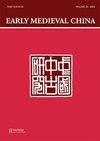The Three Scourges and Zhou Chu
IF 0.3
4区 社会学
0 ASIAN STUDIES
引用次数: 1
Abstract
Most scholars consider Zhou Chu's story of eliminating the three scourges—killing a flood-dragon and a man-eating tiger, as well as reforming himself—to be well-nigh impossible. In particular, the story of his moral transformation and his learning from someone over two decades his junior still remains a point at debate. It is not my intent in this study to argue for its truthfulness. What I argue is that the evidence presented by the historical and modern scholars on both sides has failed to provide satisfactory explanation. They have also failed to draw upon the information available through the writings of both Lu Ji and Lu Yun. Thus, we need not only to reinvestigate the source materials discussed by scholars, but also to closely analyze and draw upon the evidence implicitly shown in the poetic correspondence between Lu Ji and Lu Yun. In this study, I argue that there is simply not enough evidence to dismiss it as a myth, and that the literary works of Lu Ji and Lu Yun must be taken into serious consideration while examining the legend of Zhou Chu's self-reformation included in the Shishuo xinyu and his Jin shu biography.三灾与周楚
大多数学者认为,周处的“除恶务尽”的故事几乎是不可能的。特别是,他的道德转变以及他向比他小20多年的人学习的故事仍然是一个争论点。在这项研究中,我无意为其真实性辩护。我认为,双方历史学者和现代学者提出的证据都未能提供令人满意的解释。他们也没有从鲁和鲁的著作中获得信息。因此,我们不仅需要重新研究学者们讨论的原始材料,还需要密切分析和借鉴鲁与鲁诗歌对应关系中隐含的证据。在本研究中,我认为没有足够的证据将其视为神话,在考察《世说新语》及其《晋书传》中的周处自我改造传说时,必须认真考虑陆机和陆云的文学作品。
本文章由计算机程序翻译,如有差异,请以英文原文为准。
求助全文
约1分钟内获得全文
求助全文

 求助内容:
求助内容: 应助结果提醒方式:
应助结果提醒方式:


